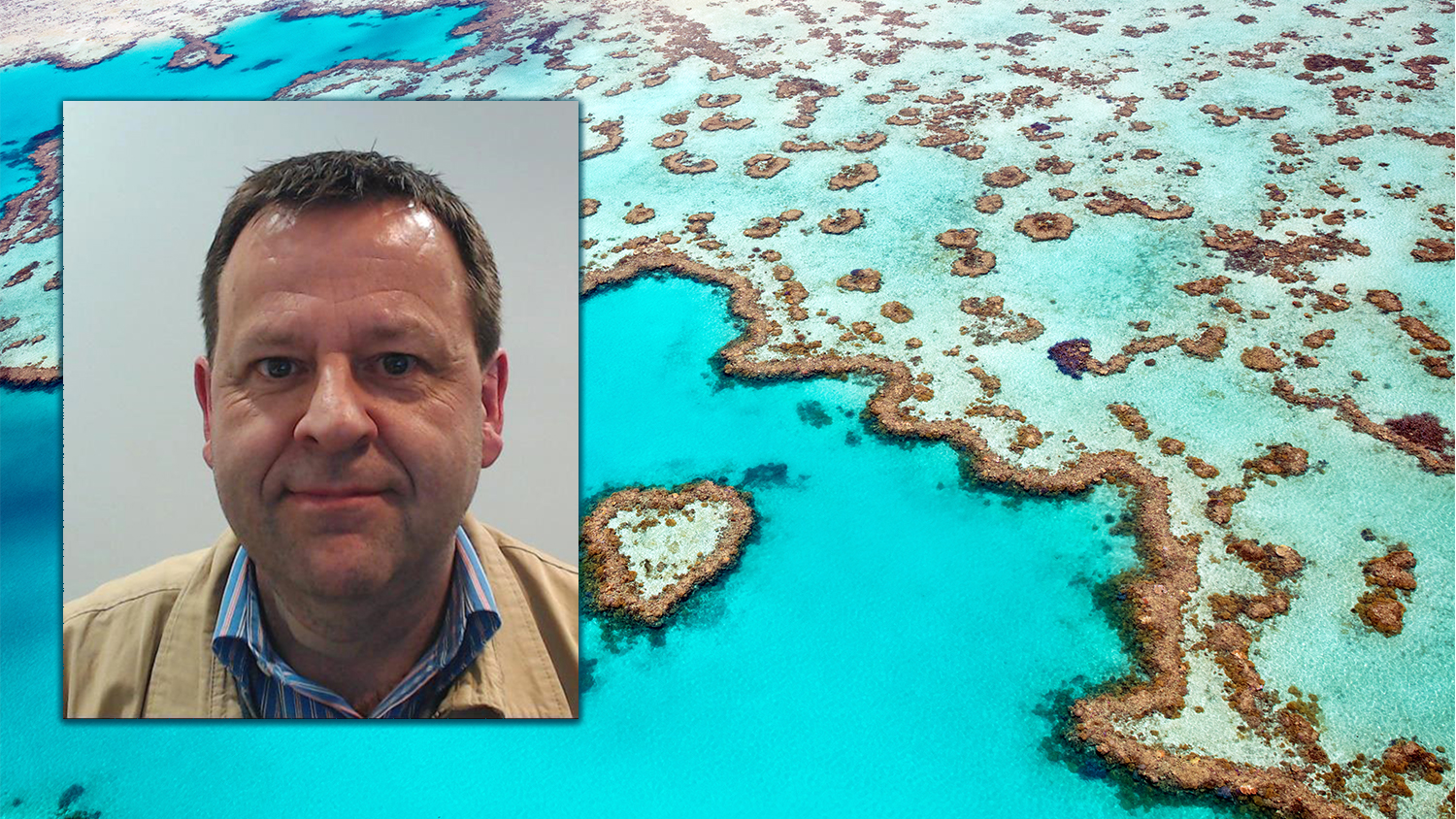
- This event has passed.
Owain Edwards – Accelerating evolution: Engineering resilience in corals to elevated sea temperatures | GES Colloquium (Zoom)

GES Colloquium Home | Zoom Registration | GES MediaSite | Video Archives | Podcast | @GESCenterNCSU | Newsletter
Accelerating evolution: Engineering resilience in corals to elevated sea temperatures
Speaker: Owain Edwards, PhD, Group Leader, Environmental & Synthetic Genomics at CSIRO
Website | Email | Org Twitter @CSIRO
Description: Coral bleaching can be prevented by replacing the coral’s symbiotic microalgae with strains that have been made more heat tolerant using assisted evolution.
Note: Colloquium will be held via Zoom until the university resumes normal operations. Click Register/Join button at the bottom of this page for Zoom link. See Virtual Colloquium: Zoom Instructions for Zoom information.
Abstract
Coral reefs worldwide are suffering mass mortality due to elevated sea temperatures. Corals die from starvation after they expel their algal nutritional symbionts in a process referred to as bleaching. With evidence that the algal symbionts are more sensitive to heat than corals, we hypothesized that increasing heat tolerance in the symbionts could prevent bleaching of the coral hosts. Using assisted evolution, we artificially selected for heat tolerance over 4 years in 10 clonal strains of a common algal symbiont species. All selected strains became more heat tolerant, but only 3 conferred bleaching tolerance to their coral host in symbiosis. All selected strains also secreted less reactive oxygen species, but the 3 conferring bleaching tolerance also exhibited higher constitutive expression of genes involved in carbon fixation. The genome sequences of one heat-tolerant strain (SS08) that conferred bleaching tolerance was compared to two heat-tolerant strains (SS03, SS05) that did not, and to the heat-sensitive wild type (WT). Single nucleotide polymorphisms (SNPs) were observed at 190 loci. The mutations in the heat-evolved strains were clustered into particular regions of the genome. Strains SS03 and SS05 followed very similar evolutionary trajectories, and showed low levels of within-strain polymorphism. Strain SS08 followed a very different evolutionary trajectory with much lower divergence from the wild type, and retained much more polymorphism than the other two adapted strains. These findings show that bleaching resistant coral stock can be developed through laboratory-based adaptation of their microalgal symbionts.
Related resources:
Heat-evolved microalgal symbionts increase coral bleaching tolerance
P. Buerger, C. Alvarez-Roa, C. W. Coppin, S. L. Pearce, L. J. Chakravarti, J. G. Oakeshott, O. R. Edwards and M. J. H. van Oppen. Science Advances 13 May 2020: Vol. 6, no. 20, eaba2498. DOI: 10.1126/sciadv.aba2498. PDF
Speaker Bio
Dr. Owain Edwards leads the Environment & Biocontrol Domain of CSIRO’s Future Science Platform in Synthetic Biology (Commonwealth Scientific and Industrial Research Organisation in Australia). Within this platform, Dr Edwards oversees the application of synthetic biology technologies for bioremediation, genetic control of pest and invasive species, and engineering resilience to environmental change. He received his PhD in entomology from the University of California, Berkeley, and an MS in entomology from the University of Missouri, and a BS in zoology from the University of Guelph. Dr Edwards is also an Adjunct Professor at Macquarie University in Sydney, where he helped establish a Research Institute in Applied Biosciences.